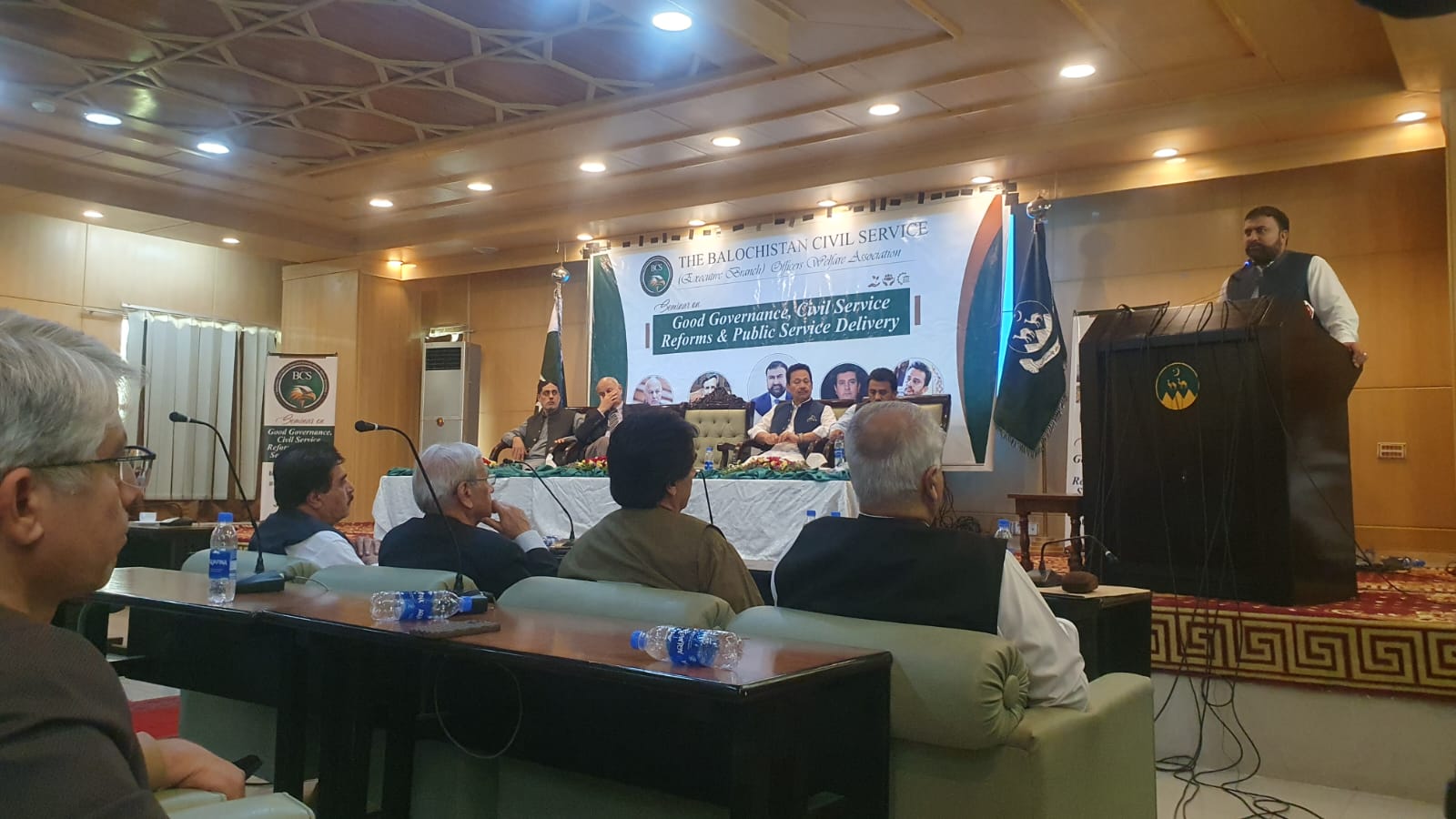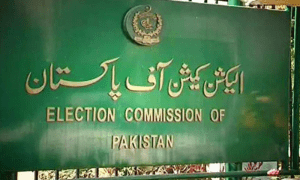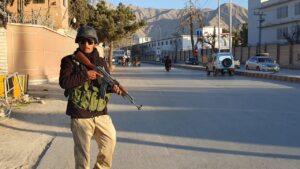Syed Ali Shah, Manan Mandokhail, News Desk:
QUETTA—Chief Minister of Balochistan, Mir Sarfaraz Bugti, disclosed that out of 332 directives he issued, over 99% remain pending, shedding light on significant governance and administrative challenges during a seminar on good governance and service delivery held at the Civil Secretariat Balochistan on Thursday.
In his address to a gathering that included Mushahid Hussain Syed, Sanaullah Baloch, and various officers and academic experts, CM Bugti highlighted the severe impact of coalition politics on the effectiveness of his office. He pointed out that the lack of single-party dominance has led to frequent blackmail and limited the Chief Minister’s authority, particularly in crucial areas like transfers and postings.
“The CM is always blackmailed because there is no single-party dominance, but rather a coalition,” Bugti remarked. He criticized both the political and bureaucratic systems, accusing them of promoting corrupt and incompetent officers. “Even the corrupt and incompetent officers get promoted,” he lamented, emphasizing systemic issues within the provincial administration.
Bugti’s remarks also addressed the undue influence exerted by lawmakers over key appointments, stating, “Every lawmaker wants their district police officer, district health officer, and deputy commissioner.” This practice, he argued, exacerbates governance problems and contributes to the inefficacy of administrative decisions.
The Chief Minister painted a dire picture of Balochistan’s current situation, highlighting pressing issues such as law and order, climate change, and widespread corruption. He criticized both politicians and bureaucrats for undermining institutional integrity, noting, “When secretaries surrender before ministers, then forget about governance.”
Bugti also expressed alarm over the personal appropriation of government officials, cautioning, “People are using the term ‘my DC, my commissioner’—this is disastrous.” His comments underscored the urgent need for reform to address corruption and improve governance in Balochistan.
The seminar concluded with a call for collective action to tackle these challenges and enhance the delivery of services, emphasizing the need for a more transparent and accountable governance framework.






